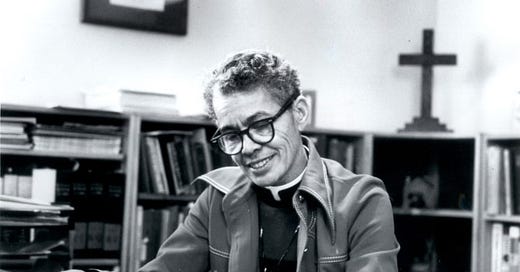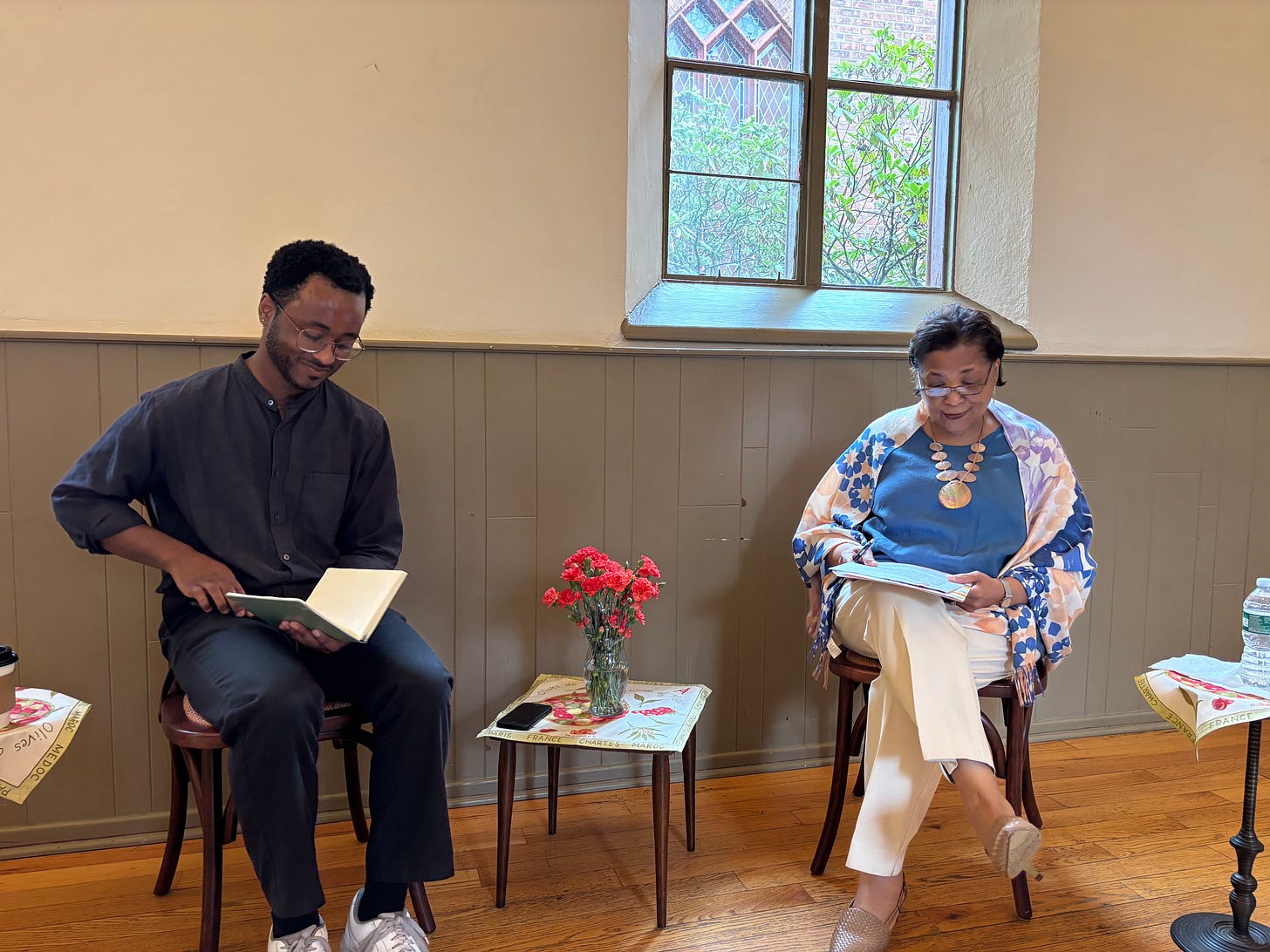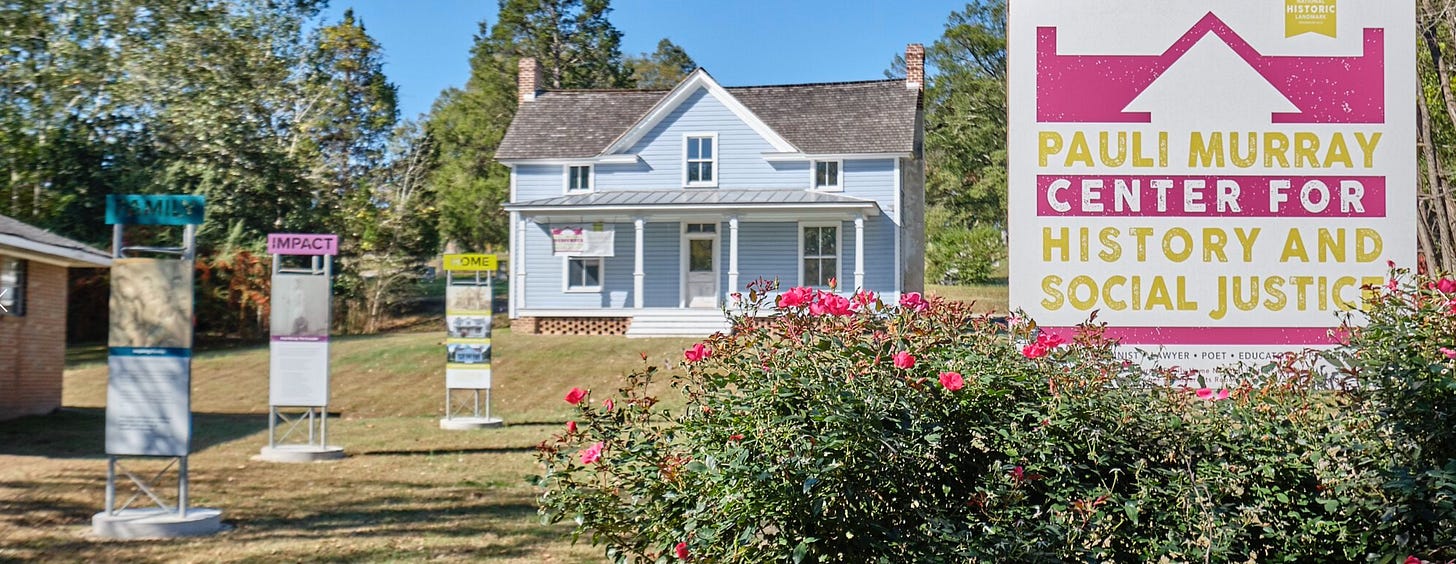Pauli Murray: Civil rights activist, feminist, legal scholar, writer, poet, and priest
Croton's Lorraine Hansberry Coalition celebrates a rare and remarkable life.
It would be hard to find a reader these days who has not heard of DEI, even if some might not know exactly what it stands for (Diversity, Equity, and Inclusion.) An equal number of people probably know that President Donald Trump thinks it is a bad thing. For example, just over a week after his inauguration, Trump was blaming an air crash that took 67 lives on DEI, even though transportation experts had barely begun investigating what actually caused it.
But DEI and its alleged evils were among the hot button issues that he campaigned on. And no sooner had Trump taken office than he began issuing executive orders designed to stamp it out, or at least to punish those who continued to pursue its principles—especially in the educational arena.
Yet it has not been smooth sailing for Trump’s anti-DEI campaign. Just last Thursday, three federal judges put a significant damper on the administration’s ability to enforce threats against schools and colleges that they would lose their federal funding if they persisted in DEI programs. And here in New York State, Attorney General Letitia James has teamed up with AGs from other states to push back against federal threats against DEI.
So it goes here in Croton as well. We reported earlier this year that the village’s Inclusion, Diversity, Equity and Accessibility (IDEA) Advisory Committee was moving forward with its planned activities. And this past Saturday, April 26, Croton’s Lorraine Hansberry Coalition—which is part of the IDEA Committee—launched its spring programs with a special presentation about Pauli Murray (1910-1985), a pioneer civil rights activist, feminist, legal scholar, writer, poet, and priest, whose influence on her times has rarely been properly acknowledged.
(For some important background on Pauli Murray that puts her into the context of her times, see this earlier Chronicle Guest Editorial by the Coalition’s Signe Bergstrom.)
The discussion, which took place in the Parish Hall of Croton’s St. Augustine’s Church, featured guest speaker Trey Walk, a board member of the Pauli Murray Center for History and Social Justice, which is housed in Murray’s childhood home in Durham, North Carolina. It was moderated by Lynda Jones of the Lorraine Hansberry Coalition, who has shown herself to be a gifted interviewer at numerous Coalition events the Chronicle has attended.
After an introduction about Murray and her life by Signe Bergstrom—which included Murray’s self description as an activist who engaged in “confrontation by typewriter” and her long friendship with Eleanor Roosevelt, who called Murray “The Firebrand”—the discussion began.
While Murray may not have been as well known as many other civil rights attorneys, Trey Walk told the audience that her legal research had been pivotal to Thurgood Marshall’s argument before the U.S. Supreme Court in the landmark 1954 case of Brown v. Board of Education, which outlawed racial segregation in the schools. Likewise, behind the scenes, Murray’s research had contributed to the unanimous SCOTUS decision in Reed v. Reed, a landmark 1971 sex discrimination case; Ruth Bader Ginsburg would later credit Murray for her contributions to the legal briefs in that litigation.
Murray also, Walk told the gathering, originated the concept that would lead to the formation of the National Organization of Women, and she later collaborated with feminist Betty Friedan to co-found NOW in 1966.
“All roads lead to Pauli Murray,” Lynda Jones commented at one point. Indeed, Walk said, Murray’s struggles with her gender identity—she at one point considered sex change surgery—took place “at the time we didn’t have the language to talk about” such issues. These challenges may have contributed to Pauli’s mental health struggles, which led her to be hospitalized several times.
The discussion ranged over many topics, from Pauli’s difficult childhood to her decision late in life to become an Episcopal priest, the first African-American woman to be ordained in that church. And while in recent years Murray has slowly been gaining more recognition for her achievements, at the very end of the discussion Trey Walk had to convey some bad news.
Earlier this month, as a result of President Trump’s Executive Order 14238 (“Continuing the Reduction of the Federal Bureaucracy”) the Pauli Murray Center lost a $330,800 federal grant it had been awarded just last year from the Institute for Museum and Library Services. The grant was supporting “a staff position, and the development of new exhibitions, programs, and educational curriculum,” according to the Center’s news release about the setback.
From the press release:
“It is clear that the federal government is making a targeted, intentional effort to erase the histories and contributions of Black people, queer people, women, and other marginalized groups from the historical record,” said Angela Thorpe Mason, Executive Director of the Pauli Murray Center for History and Social Justice.“The notion that Rev. Dr. Pauli Murray’s lived experience as a Southerner, and work as a Black, gender non-confirming civil, women’s, and human rights activist is against national interest, and essentially un-American, is abhorrent and indicative of the violent federal censorship the Center has been navigating over the course of the last month. These attacks are confirmation that our work to tell the truth and offer complex and rich stories that spark folks to engage in contemporary social justice work, is valuable, impactful, and necessary.”
So while President Trump’s anti-DEI campaign has suffered some setbacks, it is obviously still doing considerable damage around the country, and that fight will clearly go on.
Meanwhile, here in Croton at least, there are still more opportunities coming up to celebrate diversity. This Friday, May 2, the Lorraine Hansberry Coalition and members of the Hastings Historical Society will hold an Opening Reception for a special exhibit, The Clark Legacy, celebrating the lives of psychologists and civil rights activists Kenneth and Mamie Clark. It will be at our Unitarian Universalist Church and you can register for the event here.
*************************************************************************************************************
To share this post, or to share The Croton Chronicle, please click on these links.
Comments policy: Please be polite and respectful at all times.







